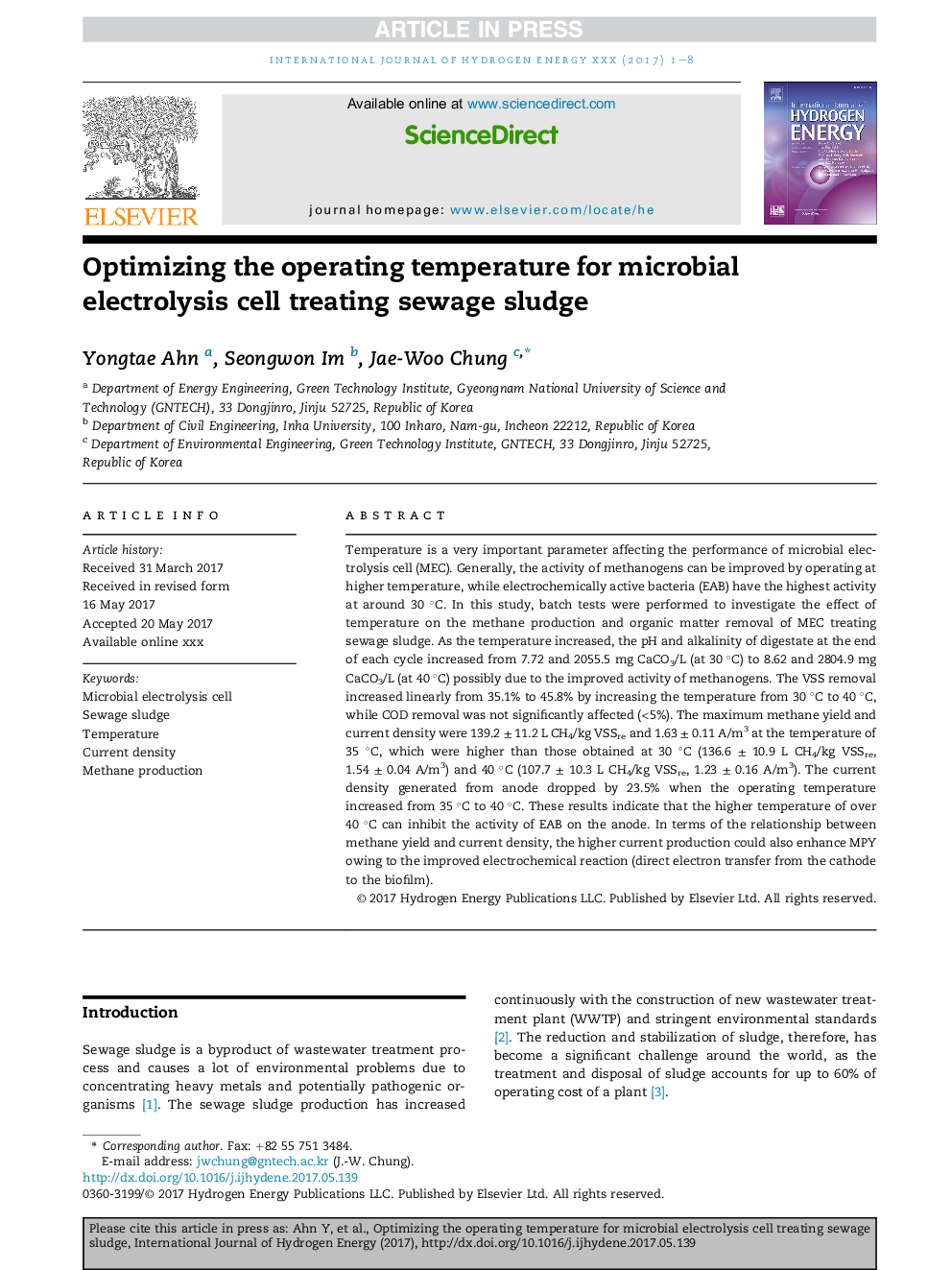| Article ID | Journal | Published Year | Pages | File Type |
|---|---|---|---|---|
| 7709722 | International Journal of Hydrogen Energy | 2017 | 8 Pages |
Abstract
Temperature is a very important parameter affecting the performance of microbial electrolysis cell (MEC). Generally, the activity of methanogens can be improved by operating at higher temperature, while electrochemically active bacteria (EAB) have the highest activity at around 30 °C. In this study, batch tests were performed to investigate the effect of temperature on the methane production and organic matter removal of MEC treating sewage sludge. As the temperature increased, the pH and alkalinity of digestate at the end of each cycle increased from 7.72 and 2055.5 mg CaCO3/L (at 30 °C) to 8.62 and 2804.9 mg CaCO3/L (at 40 °C) possibly due to the improved activity of methanogens. The VSS removal increased linearly from 35.1% to 45.8% by increasing the temperature from 30 °C to 40 °C, while COD removal was not significantly affected (<5%). The maximum methane yield and current density were 139.2 ± 11.2 L CH4/kg VSSre and 1.63 ± 0.11 A/m3 at the temperature of 35 °C, which were higher than those obtained at 30 °C (136.6 ± 10.9 L CH4/kg VSSre, 1.54 ± 0.04 A/m3) and 40 °C (107.7 ± 10.3 L CH4/kg VSSre, 1.23 ± 0.16 A/m3). The current density generated from anode dropped by 23.5% when the operating temperature increased from 35 °C to 40 °C. These results indicate that the higher temperature of over 40 °C can inhibit the activity of EAB on the anode. In terms of the relationship between methane yield and current density, the higher current production could also enhance MPY owing to the improved electrochemical reaction (direct electron transfer from the cathode to the biofilm).
Related Topics
Physical Sciences and Engineering
Chemistry
Electrochemistry
Authors
Yongtae Ahn, Seongwon Im, Jae-Woo Chung,
